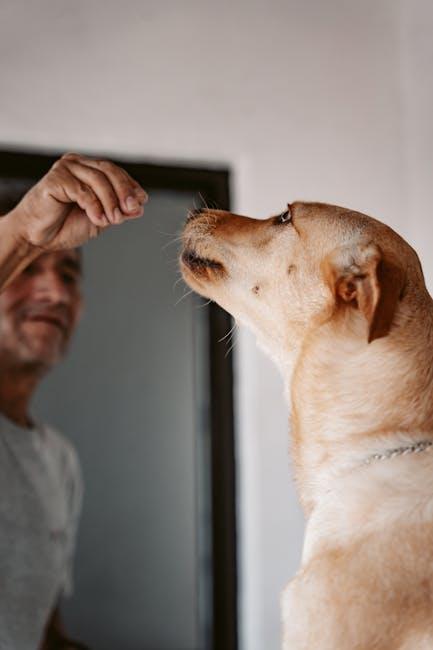Welcoming a new puppy into your home is a joyful and exciting experience, but it also comes with its fair share of challenges. Whether you’re a first-time puppy parent or a seasoned dog owner, effective training is essential to ensure a harmonious relationship with your furry friend. With the right approach, patience, and a sprinkle of love, you can lay a solid foundation that sets your puppy up for success. In this article, we will explore tried-and-true puppy training tips that not only promise success but also foster a bond of trust and understanding between you and your new companion. Let’s embark on this rewarding journey together, where every step brings you closer to a well-behaved and happy pup.
Understanding Your Puppys Unique Needs for Effective Training
Every puppy comes with its own set of quirks, personalities, and preferences, and recognizing these is the cornerstone of successful training. Just like humans, puppies have unique learning styles. Some may be motivated by treats, while others respond better to praise or playtime. Observing your puppy’s reactions and preferences can help tailor a training regimen that not only suits their temperament but also keeps them engaged and happy. Remember, training isn’t just about teaching commands; it’s about building a bond based on trust and understanding.
- Observe their energy levels: High-energy puppies may need more physical activity before they can focus on training, while calmer pups might prefer shorter, more frequent sessions.
- Identify motivators: Experiment with different rewards to see what excites your puppy the most. This could be anything from a specific type of treat to a favorite toy or enthusiastic verbal praise.
- Respect their pace: Some puppies learn quickly, while others may need a bit more time. Patience is key. Celebrate small victories and be consistent in your approach.
By tuning into what makes your puppy tick, you can create a positive and effective training environment that not only teaches your furry friend new skills but also strengthens the special bond you share.

Building a Strong Foundation with Positive Reinforcement Techniques
Establishing a nurturing environment through positive reinforcement can transform your puppy’s learning experience. By focusing on rewarding desirable behaviors, you not only teach your puppy what is expected but also build a trusting relationship. Puppies, much like humans, thrive on encouragement and positive feedback, which can be effectively delivered through treats, praise, and playtime. Here are some key practices to integrate into your training routine:
- Consistency is Key: Ensure that everyone involved in the puppy’s life uses the same commands and rewards for specific behaviors.
- Timing Matters: Provide rewards immediately after the desired behavior to help your puppy make the connection.
- Keep Sessions Short and Fun: Puppies have short attention spans, so keep training sessions brief and engaging to maintain their interest.
- Use High-Value Rewards: Identify what your puppy loves most, whether it’s a specific treat or toy, and reserve it for training to motivate them.
Incorporating these techniques can make the training process more enjoyable for both you and your puppy. Remember, patience and kindness go a long way in fostering a happy and well-behaved companion.

Creating a Consistent Training Routine to Encourage Good Behavior
Establishing a regular schedule is key to shaping your puppy’s behavior positively. Puppies thrive on routine, and creating a consistent training plan will help them understand what is expected. Start by setting aside specific times each day for training sessions. These should be short and focused, typically 5-10 minutes, to keep your puppy engaged without overwhelming them. Consistency is crucial; try to practice the same commands at the same times each day to build a reliable pattern.
Here are a few tips to make your training routine more effective:
- Use positive reinforcement: Reward your puppy with treats, praise, or playtime for good behavior.
- Keep a calm demeanor: Puppies are sensitive to their owner’s emotions, so remain patient and calm during training.
- Be clear and concise: Use simple, one-word commands and always use the same words for specific actions.
- End on a positive note: Always finish a training session with a success to leave your puppy feeling accomplished.
By maintaining a structured routine, your puppy will not only learn commands faster but also feel more secure and happy, setting a foundation for good behavior throughout their life.
















